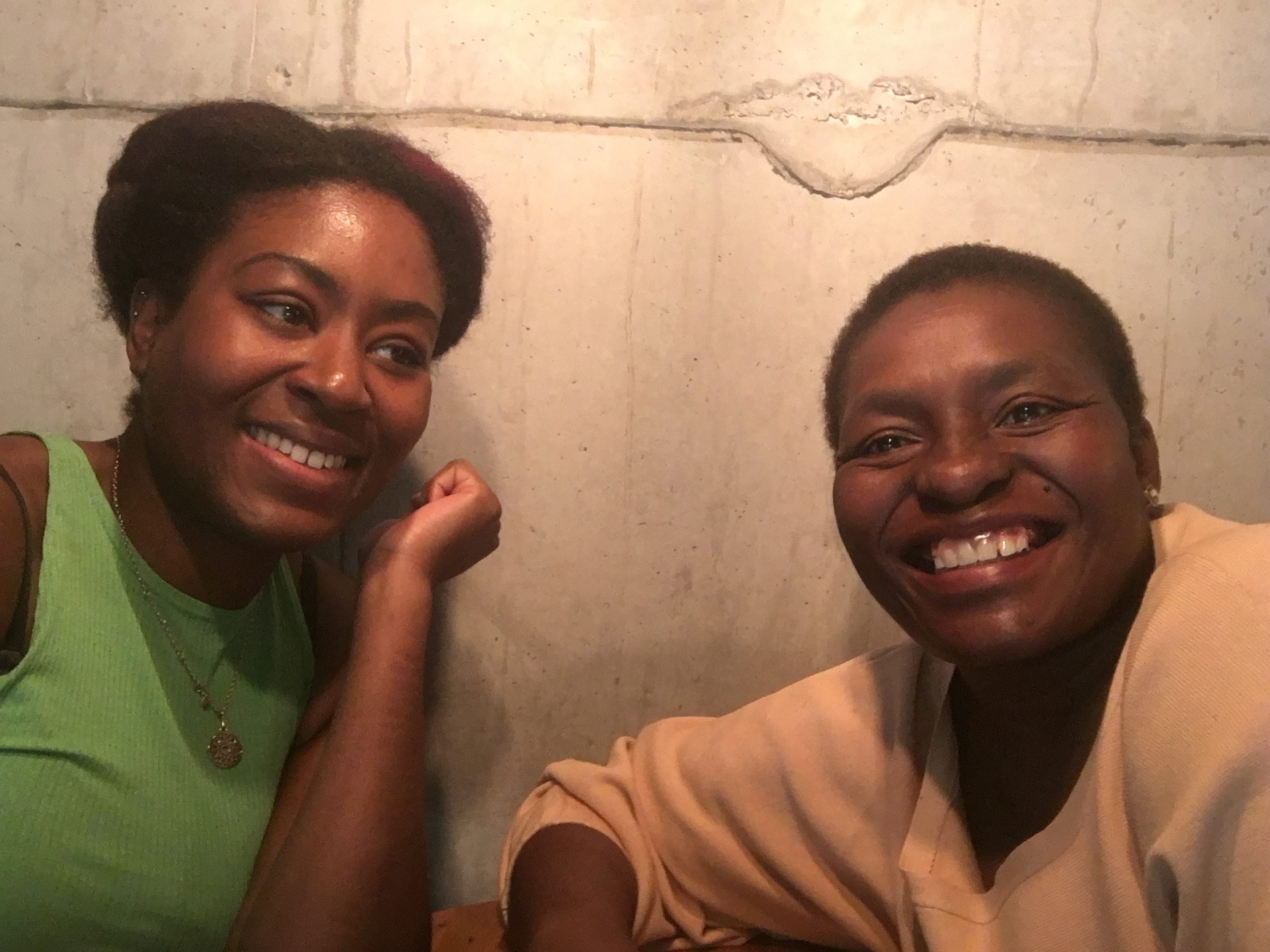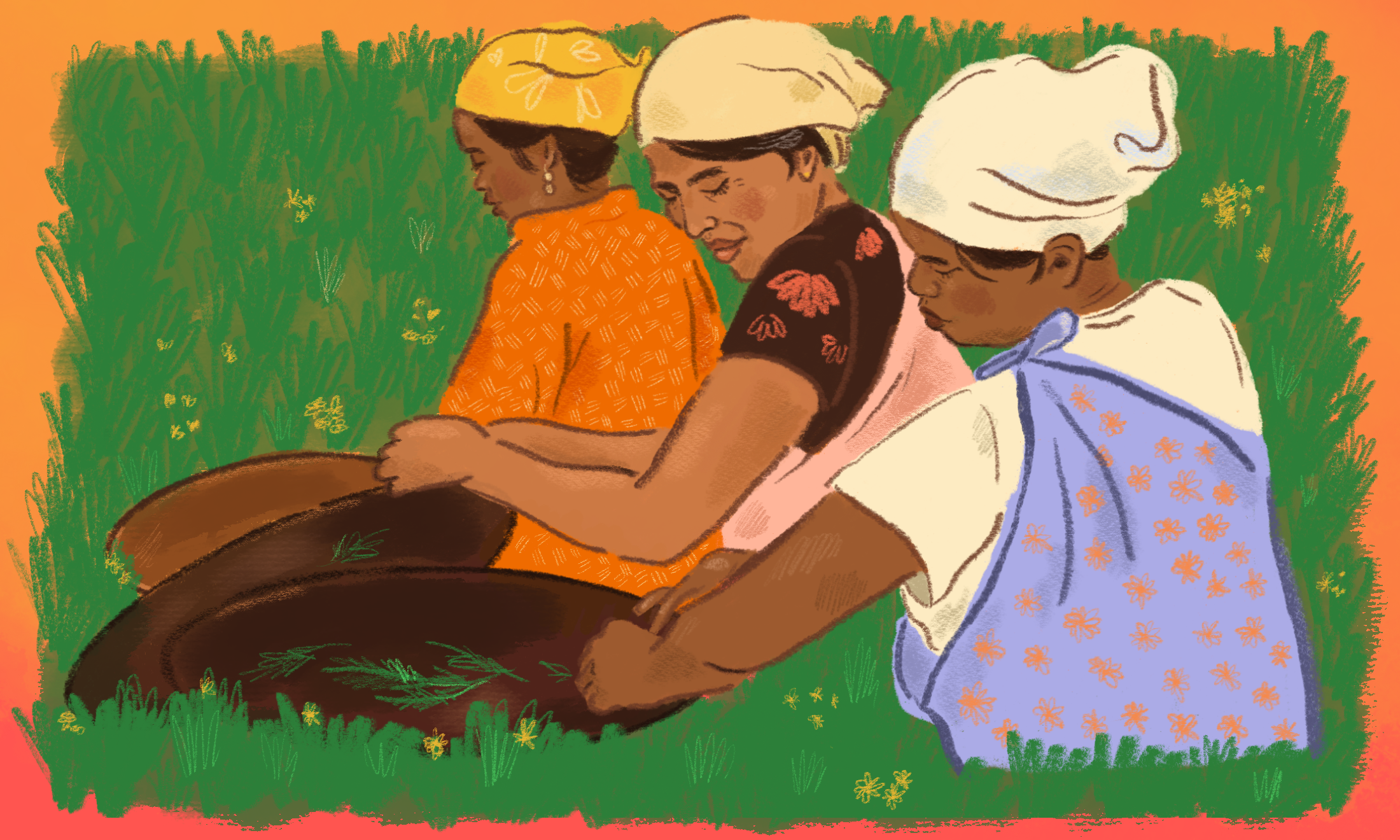
‘We are here to change the world’: in conversation with HIV treatment activist Sibongile Tshabalala
Annabel Sowemimo
17 Jan 2018
Sitting down with Sibongile Tshabalala in a small café is a strange experience: she and her peers are legends that I have only confronted in gripping photographs of HIV activists in South Africa throughout the 90s and 00s. As a member of the Treatment Action Campaign (TAC) since 2009, Sibongile has helped advance the fight for accessible treatment for some of the most marginalised groups worldwide.
The TAC was founded in 1998 in response to the growing AIDS epidemic in South Africa and the government’s failure to find an adequate solution to a disease that continues to claim the lives of millions of people. It is an organisation that was founded by ordinary people who could no longer stand by and watch AIDS claim the lives of their loved ones. In so doing, TAC redefined health activism, and set a powerful precedent for the future.
Last month I sat with Sibongile following her UK tour with Global Justice, to discuss the impact of the organisation, current barriers for those living with HIV, along with her advice for budding activists.
Annabel: How did you hear about TAC, and why did you get involved with the organisation?
Sibongile Tshabalala: When TAC was launched in 1998 most of the people in South Africa were living with HIV and there was no treatment especially for those that were poor. Treatment was only available in the private sector but not in the public sector due to the high prices. The government was in denial. When TAC was launched it was under the administration of Nelson Mandela but he then had to step down. We were in negotiations with the then-health minister Zuma, and it then fell to the President Thabo Mbeki and Tshabalala-Msimang. They did not wish to implement Mandela’s plans, but instead wanted to create their own. We didn’t agree with them, and they halted negotiations. The pharmaceutical industries began pushing back to see if they could change the policies.
Many of our members had HIV. We mobilised people from our communities and we taught treatment literacy, and about the constitution. We began to understand the science of HIV and the law; we simplified it for everyone to understand and translated it into our African languages so people on the ground that had never gone to school would be able to understand. Explaining that we needed to fight, TAC was launched.
I got involved in the TAC in 2009 when I was already on antiretrovirals (ARVs). I joined because I was so curious. I wanted to know more and I wanted to learn more. I would ask my doctor: why? Why this? How can we fight this? What can I do? My doctor said I needed to join TAC because I was taking up too much of their time. I was then elected chairperson of the branch, and this is when I started learning more about the governance, constitutions, and other things – this was where my journey started. I took it as an opportunity to say thank you to TAC for what they had done, and to give others the opportunity that TAC had given me.
Since TAC launched, has it solely focussed on access to anti-retroviral treatment (ART)?
Sibongile: Soon after we launched we started the first campaign which was about increasing access to fluconazole – a drug which can cure esophageal thrush and cryptococcal meningitis. We used this as our first campaign and we managed to win. We – TAC and Médecins san Frontières (MSF) – had to take the government and the pharmaceutical industry to court and fight for this victory. We managed to smuggle some of the drugs from other countries – generally from Thailand – to South Africa to build up our case. We said that the government must provide fluconazole for people and use their limited resources to ensure that people had access, because section 27 of the constitution says everyone has the right to adequate healthcare treatment.
The are many famous photos of TAC campaigns. Can we talk about the methods that you used, and why you used those tactics?
Sibongile: President Thabo Mbeki did not agree with us so we had to up our game. We had to fight for the rights of the people living with HIV. One thing that made TAC more popular was our focus on fighting against discrimination – in our photos you see we are wearing our “HIV positive” t-shirts. With these T-shirts we were attempting to fight stigma and discrimination – to spread the message that being HIV positive is not the end of the world.
Using sympathetic media was one part of our strategy to educate communities about HIV, and why we needed treatment. We picketed, we marched and went to the court. We marched with our members outside the court and made sure the court was full. The court would see the need for treatment. We opted for the defiance campaign – civil disobedience – and would go to the meetings where Tshabalala-Msimang or the President was speaking. We would go in as if we were one of participants and then remove our jackets, standing up with our placards, singing and demanding treatment.
It was not easy, and sometimes people were arrested. Even if we were arrested then we would go to jail peacefully and we knew if we were going to do any civil disobedience then we would collect as much treatment for those living with HIV as we could.
You have spent a considerable amount of your life campaigning. Activism requires a lot of energy and attracts fierce resistance. How do you deal with that?
Sibongile: There are two major barriers that challenge me: being a woman and being a leader. When you are both of these things, you tend to be undermined and even ask yourself questions such as: as a woman can I do this? As a woman, am I able to do this? We tend to underestimate our effort. I have had to fight against this and tell myself: “if a man is able to do it – then you are able to do it”.
Patriarchy still plays a role and men still feel that they deserve to be listened to. You have to fight your way through and as a woman leader you have to put your foot down. You are expected to always be correct and you are not allowed to make mistakes. You have so many things that you have to do as a woman. You have to take care of your babies, you have to take care of the house, take care of a man, and then you come back and you are a leader. How can you do that?
As a woman leader, you are often seen as a monster (laughs) because they’ll be scared to talk to you because you are a woman – that doesn’t bother me a lot. I try not to let things get to me, and I try to find time to spend with my babies so they won’t feel that I am not giving them enough time. I am one of these people who likes to help a lot. When I am out there campaigning, I am a person who likes to help others, so I sleep peacefully at night.
This is something that lots of women struggle with, so it is useful to hear that others are in the same position. In terms of TAC and where the organisation is at the moment, what are the key aims and challenges?
Sibongile: At TAC we currently have four key campaigns: access to affordable medicine, international activism, health strengthening systems, and monitoring HIV and TB. We decided as TAC that we would need a focus as sometimes we stretch ourselves to a point that we cannot handle. South Africa is one of the countries that is affected the most by TB and HIV. We know that we have more than 7 million people living with HIV and mostly they are infected with TB.
One of our campaigns is to go to schools where we teach about sexual and reproductive health rights, including the issue of PrEP (Pre-Exposure Prophylaxis) and young people in the country. We have more than 2500 young girls who are infected with HIV annually, so we need to improve access to PrEP.
Do young women face stigma for wanting to use PREP? Do people think this means that they are promiscuous?
Sibongile: This is a barrier and people still do not understand how to use PREP. When you say the person will have to use the treatment for as long as there is a risk, most young women do not want to take it as they fear others will think they are HIV positive. That’s one. Most of the young women, especially in African developing countries, are living under poor conditions and they lost their parents to HIV in the early years. Some of them are experiencing peer pressure, older men may be taking advantage of them, and because every young girl wants to be popular and have things then they fall into this trap.
Often as older people we tend to interfere and tell young people what to do when we don’t understand what they are going through. TAC held a congress and one of the sectors that we launched out of the congress is the youth sector, where young people talk about their issues and they talk in this space. This section is led by young women.
You have just been on tour with Global Justice discussing the pharmaceutical industry. Is there anything new you have learnt about the NHS or the UK experience?
Sibongile: There are similarities that I have noticed: that the private sector is taking over everything. I thought that this was only happening in South Africa, where most of the public services are done by outsourcing, but it was surprising to find that even the NHS is under threat of being taken over by the private sector.
The other thing that I didn’t realise is the same is the issue of patents. I was under the impression that governments in other countries had challenged more of the patent laws and that it was only our African countries that are lazy or too afraid to challenge these people because they are receiving bonuses from pharmaceutical companies. However, to learn that even in “developed” countries like the UK this still happens made me realise that this is a global challenge.
gal-dem is a platform for young women of colour. Do you have any advice for people who wish to assist TAC in getting their message across? What advice do you have for young people involved in activism?
Sibongile: Sometimes you will make mistakes and it is alright to make mistakes. You won’t know until you try something. You won’t fail until you try. If you fail, it means that next time you will pass as you will learn from what you did at that particular time. It is not wrong to fail, it is not wrong to make mistakes. We want to leave a legacy that people can learn from. To the Sibongiles of this generation – they will know what mistakes we made and that they cannot repeat them – learn from mistakes and do not repeat the same thing.
We are here to change the world. To all activists, especially women: put your foot down and fight for what is ours. Let us fight for our human rights. We are human beings like men and made out of the same blood. There is nothing different between us and men: all there is is masculinity, which does not mean anything. You can also do it, as women.









